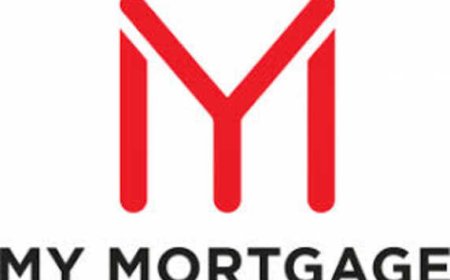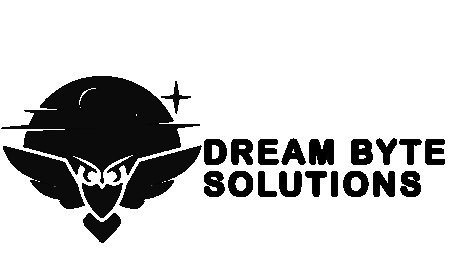What Kind of Mobile App Development Team Does Your Project Require?
Build your dream app! Discover how to assemble the right mobile app development team, from strategists to developers, for efficient project delivery.

Think of your app idea as a seed. It needs the right soil, the right climate, and the right gardener. In this case, the gardener is your mobile app development teama mix of specialists who breathe life into your vision. Whether you're a startup founder or a small business owner, choosing the right team can make or break your project.
Understanding Your Apps Requirements
Before hunting for talent, you must clearly define what you're building.
Define Your App Type
Is your app a quick MVP to test an idea? Or a full-scale product that requires robust architecture? Knowing this will help determine if you need a freelancer, a small team, or an entire agency.
Native, Hybrid, or Web-Based App?
-
Native apps offer best performance but require platform-specific developers.
-
Hybrid apps (like those built on Flutter) save time and money.
-
Web-based apps can be quicker to deploy but may lack advanced mobile features.
Key Roles in a Mobile App Development Team
To build a solid product, youll need more than just coders.
Project Manager
The bridge between your vision and the execution. They handle timelines, communication, and task delegation.
UX/UI Designers
These creatives ensure the app is both beautiful and user-friendly. They work on wireframes, prototyping, and final visual design.
Front-End Developers
They bring the user interface to life using React Native, Swift, or Kotlin.
Back-End Developers
Handle the server, database, and API developmentessential for functionality.
QA & Testers
They test for bugs, UI glitches, and performance issues before your app goes live.
DevOps and Deployment Experts
These pros make sure the launch goes smoothly and the app runs well in production.
Team Structures Based on Project Size
Solo Developer or Small Agile Team (for MVPs)
Ideal for low-budget, quick turnarounds. One or two skilled people can get a basic app running.
Mid-Sized Team (for growing businesses)
A team of 57 with balanced design, development, and testing roles works great for small businesses scaling up.
Full-Scale Team (for enterprise apps)
Need tight integration with complex systems? Then a full squad with architects, specialists, and PMs is the way to go.
Hiring Models for Mobile App Teams
In-House Team
Best for long-term products where you want tight control and collaboration.
Outsourced Team
Cost-effective, especially for one-time projects. Offers access to global talent.
Dedicated Remote Team
Strikes a balance: full-time focus on your product without the overhead of in-house staff.
Benefits of a Dedicated Mobile App Development Team
-
Streamlined communication and agile development process.
-
Focus on quality while meeting deadlines.
-
Flexibility to scale the team as your app evolves.
Challenges to Watch Out For
Communication Barriers
Especially when working with offshore or remote teams, miscommunication can delay timelines.
Time Zone Differences
While this can be leveraged for 24/7 progress, it also needs proper coordination.
Managing Remote Collaboration
Ensure everyone uses centralized platforms like Jira, Slack, and Figma for updates.
How Web Design and Management Services for Small Businesses Complement Mobile Teams
Your mobile app shouldnt exist in a silo. Web presence is still king.
Seamless Web-Mobile Experience
Your app and website should feel like two sides of the same coin.
Brand Consistency Across Platforms
UI/UX designers ensure visual harmony across app and web.
Maintenance and Post-Launch Support
A good web design and management service helps maintain everythingfrom hosting to bug fixesso your app runs smoothly in parallel with your website.
Questions to Ask Before Assembling a Team
-
Whats my total budget?
-
Do I need Android, iOS, or both?
-
Should I prioritize speed, design, or scalability?
-
How long can I wait before launch?
When to Outsource vs Build In-House
Pros of Outsourcing
-
Lower costs
-
Faster turnaround
-
Access to global skillsets
Pros of In-House Development
-
Full control
-
Better collaboration
-
Long-term team building
Tools and Technologies Your Team Should Use
-
Development Tools: Flutter, React Native, Kotlin, Swift
-
Collaboration Tools: Trello, Jira, Notion, GitHub
-
Design Tools: Figma, Adobe XD
Cost Estimation and Budgeting Tips
Hourly vs Fixed-Rate Pricing
Hourly gives flexibility; fixed is good for clear-scope projects.
Cost-Saving Through Offshore Hiring
You can hire experienced developers from countries like India, Pakistan, or Eastern Europe at a fraction of the cost of local devs.
Future-Proofing Your App with the Right Team
Hire not just for todaybut for your apps tomorrow.
-
Choose people who think like product owners
-
Build for scalability from day one
-
Keep a maintenance budget aside for upgrades
Real-World Examples
Startup Case Study
A U.S.-based startup used a remote mobile app development team from Asia and launched their MVP within 60 dayscutting development cost by 40%.
Small Business Case Study
A bakery hired web design and management services for small businesses alongside their app teamleading to 30% more online orders and a loyal local following.
Conclusion
Building a mobile app is a journey. And like every great journey, it requires a reliable team. Whether youre building your first MVP or scaling an existing app, the right mobile app development team is the difference between just launched and truly successful. Pair that with reliable web design and management services for small businesses, and your digital presence becomes unstoppable.
FAQs
1. Whats the ideal team size for a mobile app project?
It depends on scope, but most small to mid-size apps need 47 people including developers, designer, tester, and a project manager.
2. Can one developer build an app?
Yesfor MVPs or small tools. But for complex features, a team is necessary.
3. Is outsourcing better than in-house hiring?
If speed and cost are your priority, outsourcing wins. For control and tight integration, go in-house.
4. Do I need web design services alongside my app team?
Yes. A consistent online presence across web and mobile builds trust and improves usability.
5. Whats the average cost of hiring a mobile app team?
It ranges from $10,000 to $150,000+ based on complexity, region, and hiring model.
















![Top 9 Real Estate Mobile App Developers in Riyadh, Saudi Arabia [2025 Edition]](https://www.biphoo.uk/uploads/images/202507/image_430x256_6879d0d524335.jpg)

















